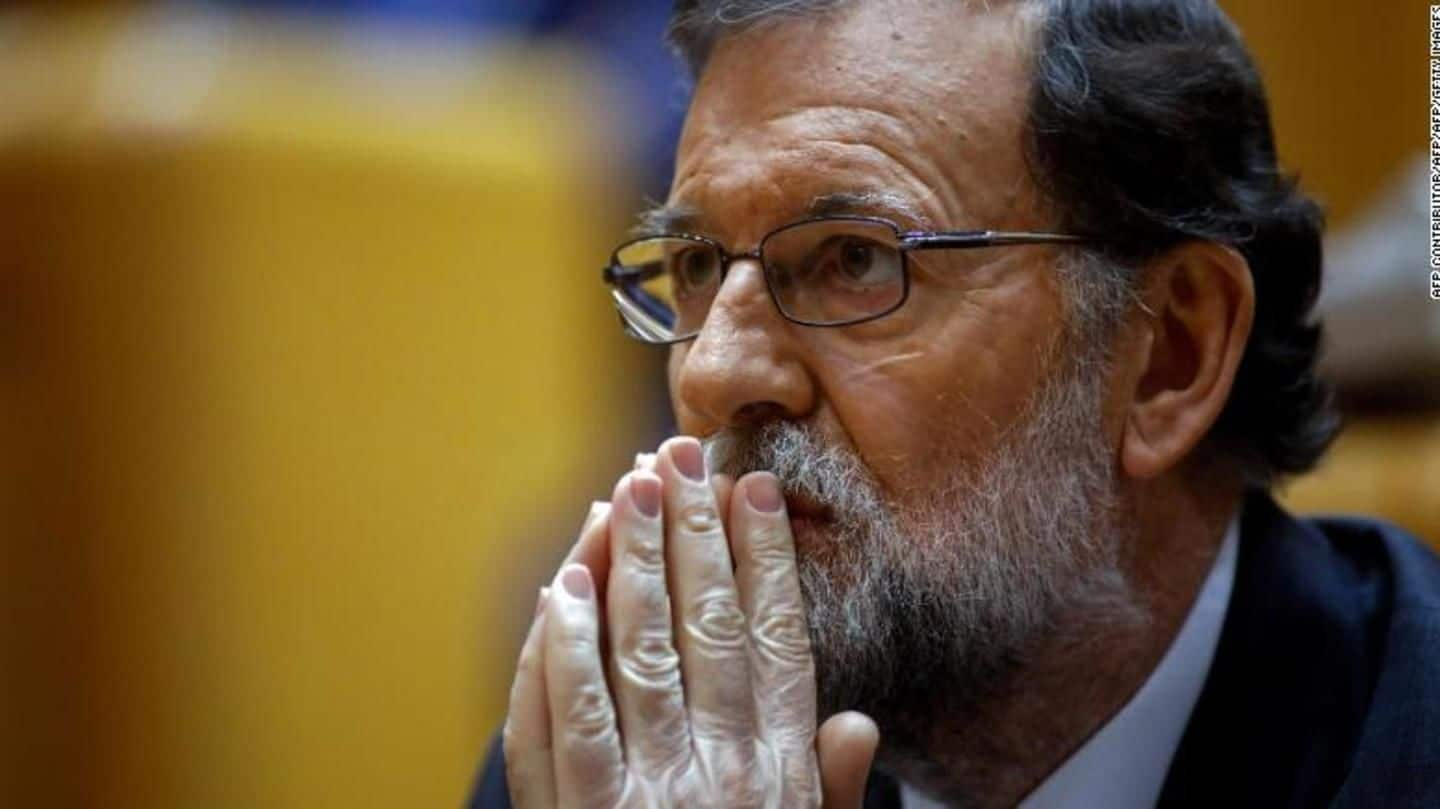
Spanish PM ousted from office after no-confidence vote
What's the story
Spanish Prime Minister Mariano Rajoy was ousted from office today following a no-confidence vote in the Parliament, marking the first time such an incident has happened in modern Spanish history. Rajoy's political demise was brought about by Socialist leader Pedro Sanchez, who had moved the no-confidence motion after Rajoy's party was implicated in a corruption scandal. Here's more about it.
Quote
Spain entering a "new page" in history?
"We're going to sign a new page in the history of democracy in our country," Pedro Sanchez had said ahead of the no-confidence vote which, the CNN reported, Rajoy was likely to lose.
Corruption scandal
The corruption scandal which brought Rajoy down
Sanchez said that Rajoy had failed to take responsibility about the involvement of his party - the conservative People's Party (PP)- in a corruption scandal. The case revolves around a secret campaign fund which the PP ran from 1999 to 2005. Last week, a former treasurer of the PP was given a 33-year-long prison sentence in connection to the case.
New PM?
Now, who is slated to be the next PM?
Rajoy had been the Spanish Prime Minister since taking power in 2011. His ousting has paved the way for Spanish Socialist Party leader Pedro Sanchez to take the office, under the provisions of the Spanish Constitution which holds that a party presenting a no-confidence motion must be prepared to govern and replace a deposed prime minister.
Political uncertainty
With Rajoy's ousting, Spain thrust into political uncertainty
Rajoy's departure puts the European Union's fourth largest economy into political uncertainty. Sanchez, who is slated to be the new PM, is not a member of the Parliament, and his party commands less than a quarter of the seats in Parliament. With just 84 seats, the Socialist party is expected to struggle to find alliances and enact legislation. Time will tell Spain's fate.